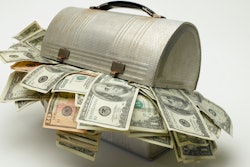Most Green Industry business owners don’t think it could ever happen to them. But it can, and it does—more often than you might think. Employees sometimes steal “little things” like snacks or maybe gasoline. Other times, though, they embezzle serious amounts of money. Sometimes, it’s so severe that the company ends up going out of business.
There are steps you can take to protect yourself from employee embezzlement. Ed McMillan (nonprofitguru.com), CPA and CAE, is an expert on fraud and embezzlement. He offers the following protection checklist.
Recognize three common symptoms. According to McMillan, in most instances of small-business embezzlement, three conditions were in play:
- The embezzler was an employee above suspicion.
- The employee in an accounting/admin function.
- Company owner (or upper management) was not reviewing bank statements before the accountant (or office manager) received and reconciled them.
Checks. Never allow accountants, bookkeepers or office managers to be the authorized signers for checks. Additionally, you should require two signatures. The two signers should not be associated with approving an invoice for payment. The more people involved in processing a check for payment, the less likely embezzlement can occur. Of course, two of your employees could be conspiring together. So your protection checklist doesn’t stop here.
Make sure outgoing checks are computer-protected or imprinted with a check protector machine. As for unused checks, keep them under lock and key.
Checks that come in the mail should be endorsed or stamped immediately before others come into contact with them; embezzlers typically don’t tamper with endorsed checks. Use a stamp that spells out the full name of your company, including your account number. Having the term “for deposit only” is also a good idea.
You also want to limit which employees contact with incoming checks.
Your bank. Have bank statements forwarded to your attention. Review them, along with cancelled checks, before your bookkeeper gets them.
Maintain an open dialogue with your bank. Also, establish an agreement that you and only you have the authority to present new signature cards to the bank. Periodically check the bank’s records to make sure they only have authorized personnel on signature cards.
Conduct random checks on bank reconciliations and investigate checks that haven’t cleared.
Employee checks and balances. Make sure that employees who do handle finances are bonded. A bonding company will seek recovery with a vengeance. Plus, a bonding company will repay your loss.
Require employees to take a vacation. Shady activity becomes obvious when the guilty party is not there to hide things.
Require that two people are involved in computing payroll and remitting payroll taxes.
Make sure all of your policies are in writing, preferably in an employee handbook. Be clear that improprieties are grounds for firing.
Final considerations. Make sure you have an effective computer backup system.
Properly shred all disposable documents that contain financial information.




















